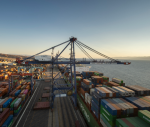You are here
Unlearning helplessness
Feb 19,2022 - Last updated at Feb 19,2022
MUNICH — There was little cause for geopolitical optimism in 2021, and this grim trend has continued at the start of 2022. Almost every month over the last couple of years, a fresh emergency has dominated the news, contributing to a sense of a mounting tide of crises that threatens to overwhelm us.
The world is struggling to cope simultaneously with the seemingly endless COVID-19 pandemic, the rise of illiberal forces in many countries, the failure of international interventions that were supposed to stabilise conflict-ridden regions, rising great-power tensions, and military buildups in key territories. Beyond these immediate concerns, the impact of climate change, a major long-term threat to humanity, has become all too tangible and political leaders have yet to mount a sufficiently forceful response. Who could be blamed for feeling overwhelmed?
In the eyes of many citizens, politicians seem far from getting a grip on today’s urgent problems and steering the world away from catastrophe. And the seemingly endless series of crises threatens to erode the public’s confidence that they and their political leaders can shape a better future.
The current malaise arguably resembles “learned helplessness”, a phenomenon first described by the psychologists Martin Seligman of the University of Pennsylvania and Steven Maier of the University of Colorado in the 1960s. In an experiment, Seligman and Maier were surprised to find that dogs that were conditioned to expect an electric shock after hearing a tone did not try to escape it, even when, in a later setting, they could do so by jumping over a small barrier. The animals, the psychologists reasoned, had learned that no matter what they did, they could not control their fate. So, they just gave up, despite having the chance to escape.
Seligman and his colleagues compared the dogs’ behaviour to the symptoms exhibited by depressed people, and suspected that clinical depression results from a real or perceived lack of control over the outcome of a situation. The same may be true of groups. Smaller or larger groups of people, and perhaps even whole societies, may collectively come to believe that they are unable to effect positive change and, as a result, stop trying.
If so, the recent sequence of crises, and political leaders’ apparent inability to cope with them, may be fostering a form of collective learned helplessness. According to new data from the Munich Security Index 2022, based on public-opinion surveys in the G-7 countries and the BRICS (Brazil, Russia, India, China and South Africa), those who agree with the statement that they feel helpless in the face of global events constitute the largest group in all the countries polled.
In the democracies surveyed, the “helpless” are in the majority: 57 per cent of respondents agree with the statement, while only 12 per cent disagree. China is the only country among the 12 in which more than a quarter of respondents (27 per cent) disagree with the statement. Similarly, although the figures are in general slightly lower, majorities or pluralities of respondents in all 12 countries agree that their countries have no control over global events.
Of course, one might ask why anyone should believe that they or their countries can steer global events. But the promise of control, even if an illusion, has been a crucial element of politics in the modern age, when human beings, rather than God or fate, are supposed to be pulling the strings.
This helps to explain why the widespread perception of a loss of control, and a longing to regain it, are key political themes of our time. Slogans such as “take back control”, “America first,” “strategic autonomy”, and “European sovereignty” all reflect the same underlying impulse.
The danger is that a widespread feeling of collective helplessness risks preventing the world from addressing the most important crises until it is too late. Societies overwhelmed by a wave of emergencies may end up meekly accepting what happens to them, even though they have the tools and resources to change it. In many countries, for example, people do not believe that the international community can successfully mitigate climate change, or do not trust others to do their fair share.
But while today’s challenges are huge, our ability to cope with them will depend to a significant degree on our self-perception. Do we really believe that we are collectively helpless? Or are we willing to use our collective resources and intensify international cooperation because we believe we can turn the tide?
Above all, political leaders need to show that we can collectively “unlearn helplessness”. As key decision-makers such as US President Joe Biden and German Chancellor Olaf Scholz have stressed repeatedly, democracies must demonstrate that they can deliver. Despite, or perhaps because of, the challenges liberal democracy faces, leaders need to inspire a new sense of confidence at home and abroad that they can tackle the crises in front of us.
And there is a silver lining. Notwithstanding all the angst about the future of democracy, Munich Security Index data also show that people still think democracies are better able than undemocratic countries to solve the problems of the future. Now they need to prove it.
Tobias Bunde, director of Research and Policy at the Munich Security Conference, is a researcher at the Hertie School’s Centre for International Security and co-editor (with Benedikt Franke) of “The Art of Diplomacy: 75 Views Behind the Scenes of World Politics”. Copyright: Project Syndicate, 2022. www.project-syndicate.org












